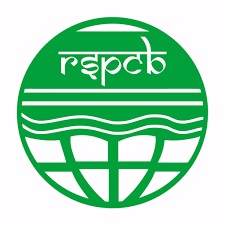RSPCB Download Call Letter 2023-24 Junior Scientific Officer, Environmental Engineer : Rajasthan State Pollution Control Board
Organisation : Rajasthan State Pollution Control Board RSPCB
Recruitment Name : Law Officer- II, Junior Scientific Officer & Junior Environmental Engineer 2023-24
Announcement : Download Call Letter
Date of Examination : 9th Jan 2024, Tuesday
Website : https://environment.rajasthan.gov.in/content/environment/en/rajasthan-state-pollution-control-board.html#
How to Download RSPCB Call Letter?
Commencement of Call letter Download 01 – 01 – 2024
Closure of Call letter Download 09 – 01 – 2024
To Download Call letter for the post of Law Officer-II, Jr Scientific Officer, Jr Environmental Engineer 2023, follow the below steps
Steps :
Step 1 : Go to the link https://ibpsonline.ibps.in/rspcbsep23/oecla_dec23/login.php?appid=91549299c7d39485c94b918678d76d47
Step 2 : Enter Registration No / Roll No
Step 3 : Enter Password / DOB(DD-MM-YY)
Step 4 : Enter Captcha Code
Step 5 : Click on Login Button
Related / Similar Admit Card :
Rajasthan High Court Download Admission Card System Assistant 2023
SSC Delhi Police Download Call Letter PST/PET Constable (Executive) 2023

Syllabus of Junior Scientific Officer & Environmental Engineer
LAW OFFICER-II Syllabus :
PART-A :
** Environmental Legislations in India. Environment (Protection) Act, 1986, its amendments and various rules/notification made thereunder. Water (Prevention & Control of Pollution) Act, 1974, Air (Prevention & Control of Pollution) Act, 1981, Public Liability Insurance Act, 1991, National Green Tribunal Act, 2010
** Right to Information Act, 2005
** Roles of judiciary in combating pollution, Social and Civil Society Movements in protecting environment, Concept of “Public Participation”, Corporate Environmental Responsibility
** Role of Pollution Control Board, Policy statement for abatement of pollution-1992, Indian Judiciary on the salient attributes on Right to Environment, Rule of strict liability and its application in environmental jurisprudence
** Judicial Activism, Traditional common and criminal law remedies available to the citizen for abatement of pollution, Legal and social challenges to the regulation of the ground water in India
** Constitution of India with special emphasis on Fundamental Rights, Directive Principles and enforcement of right through writs, Functioning of Supreme Court, High Court, National Green Tribunal and various appellate authority constituted under Air Act & Water Act
** Indian Penal Code, Civil Procedure Code and Criminal Procedure Code. Provisions required to be referred generally in Government Office will be given importance
** Evidence Act, Limitation Act, Interpretation of Statutes, drafting and conveyancing, Environment Related Acts & Status, General Administration Law, Important Supreme Court & National Green Tribunal decision on Environment
** National/International events related to environment and common understanding of environmental processes
PART-B :
General Knowledge (with special reference to history, art, culture, traditions, literature, heritage and geography of Rajasthan), Mathematics, reasoning and current affairs.
JUNIOR SCIENTIFIC OFFICER Syllabus:
PART-A :
Environmental General knowledge:
This section will contain questions on National/International events related to environment and common understanding of environmental processes, National Green Tribunal Act, 2010, Pollution Indices.
Environmental Impact Assessment/Environmental Legislations in India:
Basic concept of Environmental Impact Assessment and Environment Management Plan; Prediction and assessment of impacts on air, water, biota, noise, cultural and socioeconomic environment; Rapid and comprehensive Environmental Impact Assessment.
Environment (Protection) Act 1986, its amendments and various rules /notification made thereunder. Water (Prevention & Control of Pollution) Act, 1974, Air (Prevention & Control of Pollution) Act, 1981.
Water/Waste Water/Industrial Waste Water Analysis:
Physical, chemical and biological characteristics of water, waste water and Sewage, performance evaluation of waste water treatment system.
Air and Noise Pollution:
Sources of air pollution; Properties of air pollutants; Meteorological factors influencing dispersion of air pollutants; Gaussian plume model for dispersion of air pollutants and its application; Effects on human health. Control technology for particulate and gaseous pollutants from industries.
Air pollution due to Automobiles and emission control; Principles of measurements and equipment use for major parameters (Water/Air/Noise); Basics of noise pollution, Measurement and management of noise and effects on human beings, Ambient Air Quality standards & Air Quality Index.
Municipal Solid Waste, Biomedical Waste, E-Waste, Plastic Waste and Hazardous Solid Waste:
Problems associated with Solid Waste viz; municipal, biomedical, hazardous, e-waste, plastic waste etc., its generation, classification, characterization, analysis, treatment, reuse, recycle etc; Risk associated with hazardous waste & its Assessment; Waste Minimization; Priorities in hazardous waste management; hazardous waste treatment.
PART-B :
General Knowledge (with special reference to history, art, culture, traditions, literature, heritage and geography of Rajasthan), Mathematics, reasoning and current affairs.
JUNIOR ENVIRONMENTAL ENGINEER (Syllabus & Examination Scheme):-
PART-A :
Environmental General Knowledge:
This section will contain questions on National/International events related to environment and common understanding of environmental processes, National Green Tribunal Act, 2010, Pollution Indices.
Water/Waste Water/Industrial Waste Water Engineering:
Unit processes/Operations related to water and waste water treatment, namely Equalization Coagulation; Flocculation; Settling; filtration; Disinfection; Aeration; Adsorption etc.
Physical, chemical and biological characteristics of water and Sewage; Activated sludge process and its modifications; treatment ponds and aerated lagoons; Trickling filters; Rotating biological contactors; Sequencing Batch reactor and Membrane Batch Reactor. Anaerobic digestion; Anaerobic filter and UASB, Nitrification & De- nitrification. Characteristics and treatment of waste water from Textile, Tannery, Dairy, Distillery, Pharmaceutical Industry, Organic Chemical, Vegetable Oil Refinery.
Air and Noise Pollution:
Sources of air pollution; Properties of air pollutants; Meteorological factors influencing dispersion of air pollutants; Gaussian plume model for dispersion of air pollutants and its applications, Effects on human health. Control technology for particulate and gaseous pollutants from industries.
Air pollution due to Automobiles and emission control; Basic of noise pollution, Measurement and management of noise. Permissible noise levels in different zones, Effects of noise on human beings, Ambient Air Quality standards & Air Quality Index.
Environmental Impact Assessment/Environmental Legislations in India:
Basic concept of Environmental Impact Assessment, Environmental Impact Statement and Environment Management Plan; Prediction and assessment of impacts on air, water, biota, noise, cultural and socioeconomic environment; Rapid and comprehensive Environmental Impact Assessment.
Environment (Protection) Act 1986, its amendments and various rules /notification made thereunder. Water (Prevention & Control of Pollution) Act, 1974, Air (Prevention & Control of Pollution) Act, 1981.
Municipal Solid Waste, Biomedical Waste, E-Waste, Plastic Waste and Hazardous Solid Waste:
Problems associated with Solid Waste viz; municipal, biomedical, hazardous, e-waste, plastic waste etc., its generation; classification; characterization; analysis; Onsite Collection Handling, storage Transport and Processing of solid waste; Recovery of Resources, Conversion Products and Energy generation from solid waste. Hazardous waste definition; Risk associated with hazardous waste & its Assessment; Waste Minimization; Priorities in hazardous waste management; hazardous waste treatment.
PART-B :
General Knowledge (with special reference to history, art, culture, traditions, literature, heritage and geography of Rajasthan), Mathematics, reasoning and current affairs.

Examination Scheme of Junior Scientific Officer & Environmental Engineer
There will be one paper consisting of two parts having multiple choice type questions. There will be total 75 numbers of questions of 3 marks each. The question paper will be in Hindi and English (Bilingual)
Paper-Subject No. of Question
PART-A 060
PART-B 015
Time : 90 Minutes
Total Marks : 225
Note:
(1) Each question will carry 3 marks.
(2) One mark will be deducted for each incorrect answer
(3) 40% shall be the pass marks

Recent Comments